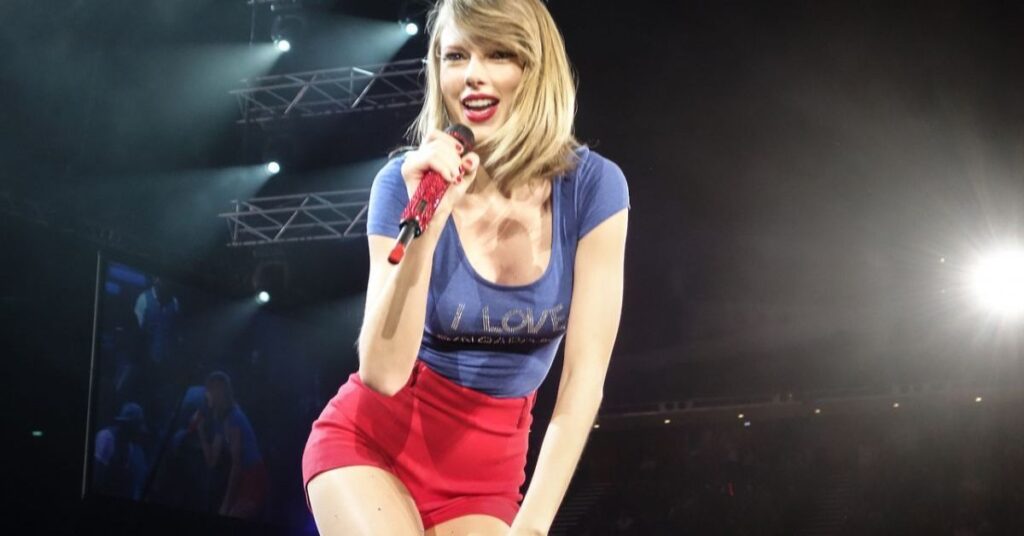Contents
- 1 Introduction: Taylor Swift’s Strategic Revolution
- 2 The Early Years: A Prelude to Power
- 3 The Masters Controversy: A Strategic Masterclass
- 4 Re-Recording Her Albums: A Genius Business Move
- 5 Dominating the Streaming Era on Her Terms
- 6 The Power of Direct-to-Fan Engagement
- 7 Reinvention as a Business Strategy
- 8 Owning the Narrative Through Visual Media
- 9 Merchandise, Tours, and Exclusive Drops: Monetizing Loyalty
- 10 Legal Foresight and Copyright Savvy
- 11 Setting New Industry Standards
- 12 Actionable FAQs
- 12.1 How did Taylor Swift regain control over her music?
- 12.2 Why is Taylor Swift re-recording her old songs?
- 12.3 What business strategies did Taylor Swift use to succeed?
- 12.4 What impact did Taylor Swift have on the music industry?
- 12.5 Is Taylor Swift involved in her branding and business decisions?
- 13 Conclusion: Genius Beyond the Charts
Introduction: Taylor Swift’s Strategic Revolution
Taylor Swift is not just a pop icon—she is a strategic force who has repeatedly reshaped the music industry to her advantage. From reclaiming her masters to disrupting streaming norms and building a loyal fan empire, her journey exemplifies what it means to outsmart a system built to favor the powerful few. In this article, we’ll explore how Taylor Swift outsmarted the music industry, and how her business acumen rivals her musical genius.
The Early Years: A Prelude to Power
Taylor Swift entered the music industry as a teenager, signing with Big Machine Records. While her initial success appeared typical—chart-topping hits and country awards—what set her apart was her keen understanding of branding and storytelling. She wrote her own songs, built a persona her audience could relate to, and laid the foundation of long-term fan loyalty.
Key Moves:
- Wrote authentic, autobiographical songs.
- Connected directly with fans via social media.
- Built a distinctive brand early in her career.
These decisions positioned Swift not just as a performer, but as a creator in control of her narrative.
The Masters Controversy: A Strategic Masterclass
One of the most defining moments in Taylor Swift’s career was her battle over her master recordings. In 2019, music executive Scooter Braun acquired Big Machine Records—and with it, the masters of Swift’s first six albums. Rather than accept the situation, Swift launched a counter-strategy that turned the industry on its head.
Swift’s Bold Strategy:
- Refused to keep quiet about her masters’ selling.
- Announced her plan to re-record all six albums.
- Framed the situation as a matter of artistic ownership and integrity.
Her re-recordings—dubbed Taylor’s Version—were not only commercially successful but reshaped public sentiment. By turning a legal disadvantage into a cultural movement, Swift redefined what artist empowerment could look like.
Re-Recording Her Albums: A Genius Business Move

By releasing Fearless (Taylor’s Version) and Red (Taylor’s Version), Swift reclaimed control and diverted value away from the original masters. These albums weren’t just nostalgic releases—they were strategic missiles targeting the market value of her old catalog.
Results:
- Fans overwhelmingly supported her versions.
- Streaming platforms boosted the re-recordings.
- Major artists began reconsidering their contracts.
Swift’s approach created a blueprint for artists to regain control in an industry historically dominated by record labels.
Dominating the Streaming Era on Her Terms
Early in her career, Taylor Swift made headlines by pulling her music from Spotify, arguing that artists deserved fair compensation. Critics called it a misstep—but Swift proved them wrong again.
Timeline:
- Removed her music from Spotify in 2014.
- Withheld her 1989 album from streaming platforms.
- Returned in 2017 once new terms were more favorable.
Her stand sparked broader conversations about artist royalties and forced streaming platforms to reevaluate their models. Once again, she used her leverage not just for personal gain, but to influence industry-wide changes.
The Power of Direct-to-Fan Engagement

One of the most underrated aspects of how Taylor Swift outsmarted the music industry is her direct relationship with fans. From Tumblr interactions to surprise album drops and personalized gifts, she has built an emotional connection that most artists can only dream of.
Notable Tactics:
- Secret sessions at her house with fans.
- Easter eggs and cryptic hints to build engagement.
- Surprise announcements like folklore and evermore.
This level of intimacy created a self-sustaining marketing machine powered by Swifties, making traditional PR campaigns nearly obsolete in her world.
Reinvention as a Business Strategy
Swift’s ability to evolve across genres—from country to pop to indie-folk—illustrates not just creative flexibility but business intelligence. Each reinvention brought in new audiences without alienating her core fan base.
Genre Evolutions:
- Country roots in Fearless and Speak Now.
- Pop domination with 1989 and Reputation.
- Indie-folk with folklore and evermore.
Each era was meticulously branded, with cohesive visuals, sounds, and stories—helping to keep her culturally relevant for nearly two decades.
Owning the Narrative Through Visual Media
Taylor Swift has embraced filmmaking as another arena for control and storytelling. Her short film All Too Well (10 Minute Version) won awards and expanded her influence beyond music into cinema.
Why It Matters:
- Enhances brand depth.
- Builds cross-platform appeal.
- maintains her authority over the telling of her story.
Swift understands that in today’s media landscape, music alone isn’t enough. Owning the visual storytelling aspect ensures her message remains unfiltered and emotionally resonant.
Merchandise, Tours, and Exclusive Drops: Monetizing Loyalty
Swift’s merchandise and touring model have become a case study in fan monetization without exploitation. Her Eras Tour became one of the highest-grossing tours of all time, showing the power of emotional investment and smart marketing.
Business Highlights:
- Limited-edition merch linked to each album era.
- Exclusive content for fans who pre-order or stream her albums.
- Bundled album sales to boost chart performance.
Every aspect is designed to reward loyalty and deepen her fan connection—turning casual listeners into lifelong customers.
Legal Foresight and Copyright Savvy
Taylor Swift’s legal strategies reflect a high level of foresight. From trademarking phrases like “this sick beat” to managing publishing rights, she has taken control over nearly every aspect of her brand.
Key Legal Wins:
- Trademarked several catchphrases.
- Maintained songwriting credits and royalties.
- Challenged Spotify’s payout model early.
She treats her brand like intellectual property—and that’s a lesson more artists are beginning to learn from.
Setting New Industry Standards

The cumulative effect of all her moves? A paradigm shift in how artists perceive power and ownership in the music industry. Taylor Swift has become more than a musician—she’s a symbol of resistance, innovation, and transformation.
Industry Impact:
- Empowered younger artists to own their work.
- Changed how record contracts are written.
- Inspired legal and streaming reforms.
If there’s a modern artist who encapsulates how Taylor Swift outsmarted the music industry, it is Swift herself—with every headline she’s rewritten the rules.
Actionable FAQs
How did Taylor Swift regain control over her music?
She began re-recording her first six albums after the rights to her original masters were sold without her consent. The new versions—labeled Taylor’s Version—gave her full ownership and control.
Why is Taylor Swift re-recording her old songs?
Swift wants to reclaim her artistic ownership and devalue the original masters, which she does not control. It also allows her to profit fully from streaming and sales.
What business strategies did Taylor Swift use to succeed?
She leveraged fan engagement, controlled her narrative, adapted across genres, and stood up to industry giants like Spotify and record labels to gain long-term autonomy.
What impact did Taylor Swift have on the music industry?
She challenged the power dynamics of record labels, influenced streaming royalties, inspired artist ownership, and became a model for strategic reinvention.
Is Taylor Swift involved in her branding and business decisions?
Absolutely. Swift is known for being hands-on in all aspects of her career—from music production and branding to legal matters and marketing strategies.
Conclusion: Genius Beyond the Charts
Taylor Swift’s journey proves that outsmarting the music industry isn’t just about commercial success—it’s about vision, persistence, and strategy. She has redefined what it means to be an artist in the 21st century: not just a performer, but a creator, a CEO, and a revolutionary.

Harper Leigh is a dedicated writer at hsnime.co.uk, where she crafts engaging and insightful content on a wide range of topics. With a passion for storytelling and connecting with readers, Harper aims to inspire, inform, and entertain through her articles.










